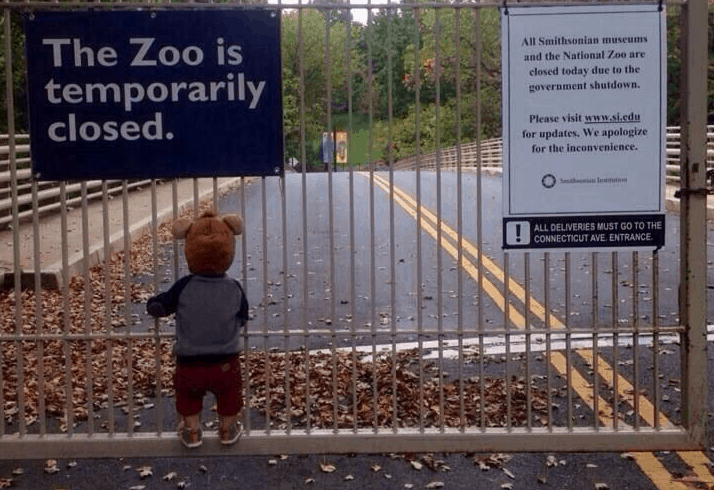
Toward the end of August, the social media networks exploded with a story: the Richard Dawkins Foundation’s Facebook page posted this image, citing a news story that alleged the Pope had made it illegal to report sex crimes in the Vatican.
The problem was, the story was drawn from a news parody site. Blogs picked up on it, and the obligatory social media mockery followed shortly.
My initial reaction was that New Atheism has come full-circle and descended into the sort of self-parody seen on the fringes of Christian fundamentalism.
One might characterize New Atheism as a largely polemical movement that attacks a particular type of Christianity—the religious and political practices of the “far right”—and conflates the part with the whole of Christendom. So using the actions and views of the New Atheism movement to broadly criticize atheism is a move that (perhaps subconsciously) conflates a particular group of atheists with the whole—the very accusation one might level against New Atheism. It also distracts from a larger and more important conversation that Christians and atheists should be having.
When atheists in America are distrusted, marginalized and politically underrepresented, it shouldn’t be difficult to understand the frustration behind the New Atheism movement. To blow an instance like the above out of proportion lacks sympathy and class, and it doesn’t lead to a constructive conversation. Rather, it imitates a national media that stokes controversy and gives self-righteous talking heads a platform to argue without resolution.
Not only is this not Christlike, it’s a huge missed opportunity.
Before the finger-pointing, name-calling and blame-laying, we must remember that studies have shown most atheists aren’t antitheists, just as most Christians worldwide aren’t far-right fundamentalists.
The loudest factions of Christianity and atheism aren’t the largest, which presents the occasion for mutual understanding: open, honest, introspective and rational discussion between groups of people who share more in common than not.
The conversation we should have would engage one another on that basis. There’s room for intelligent discourse around some of the most critical questions about humanity—how we relate to the world we share, how our beliefs inform our lifestyles, how we fit into this vast, cosmic scheme of being.
Such a conversation would allow us to “do nothing from rivalry or conceit, but in humility count others more significant than [our]selves” (Philippians 2:3). It would give us an opportunity to “be quick to hear, slow to speak, slow to anger” (James 1:9). It would let us try to “outdo one another in showing honor” (Romans 12:10). Respect begets respect. Can’t we approach interfaith (or “counterfaith”) dialogue using this method?
Consider the relationship of G.K. Chesterton and George Bernard Shaw, the former a Catholic and the latter described as an “involuntary atheist.” Their relationship was distinguished on the one hand by scathing written criticism and intense public debate. On the other hand, their mutual respect for the intellect of the other was plain to see and begot genuine friendship.
Chesterton once quipped, “It is necessary to disagree with him as much as I do in order to admire him as much as I do.” Shaw characterized Chesterton as “friendly, easy-going, unaffected, gentle, magnanimous, and genuinely democratic.” Indeed, Shaw’s affection for Chesterton was on full display in a mournful letter written to his widow Frances the day after his death, calling it “ridiculous that I, 18 years older than Gilbert, should be heartlessly surviving him.” He offered to help her in any way possible before closing, “the trumpets are sounding for him,” alluding to Heaven as described in The Pilgrim’s Progress.
The late Christopher Hitchens, inarguably a man of staggering intellect and arguably the finest journalist and critic of our time, was a champion of New Atheism. But his public persona belied the incredible love he had for those he debated, notably evangelical apologist Larry Taunton. After Hitchens’ death, Taunton fondly remembered their meals together, frequent phone calls and visits, and a “civilized, rational discussion” about the Gospel of John, which they’d read together.
When asked his opinion of Taunton before a public debate, Hitchens said, “If everyone in the United States had the same qualities of loyalty and care and concern for others that Larry Taunton had, we’d be living in a much better society than we do.” Later that evening, Hitchens complimented Taunton’s performance. When Taunton dismissed Hitchens as having been gentle with him, Hitchens merely replied, “Oh, I held nothing back,” and then asked if they were still on for dinner.
These two examples illustrate a much larger point. The topics atheists and Christians disagree upon are hugely important, worthy of discussion and even debate. But the dialogue needs to come from a place of mutual admiration, respect and intellectual honesty.
Antagonistic and attacking “conversation” is not only unproductive, it’s incredibly damaging to both parties (and any witnesses). When we take an instance like the Dawkins Foundation’s Facebook post and use it as a chance to poke fun, we slam shut the door of opportunity for meaningful discussion.
Conversation that’s auspicious and sympathetic does the opposite: it encourages. It inspires. It builds friendships.
Christ commanded that we love one another as He loved us (John 15:12). In matters of discussion with those who believe differently than we do, nothing could possibly be more important.






















